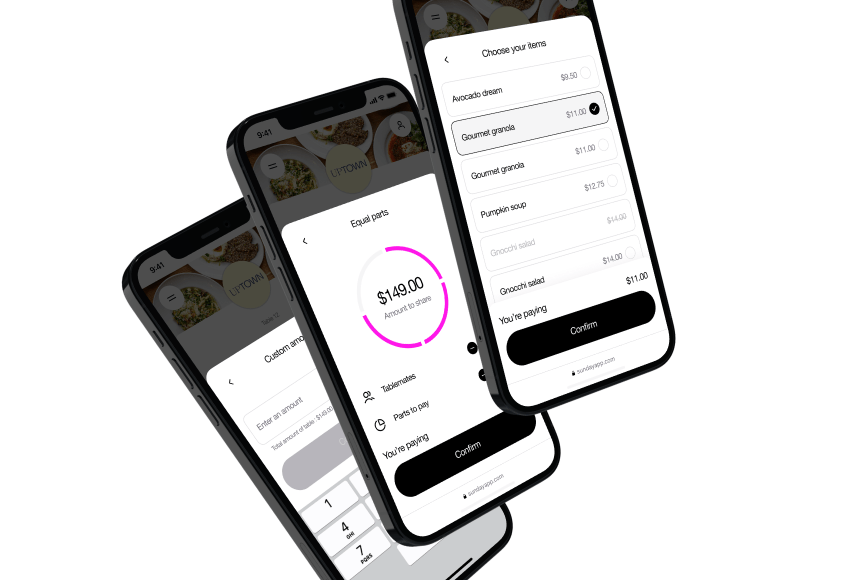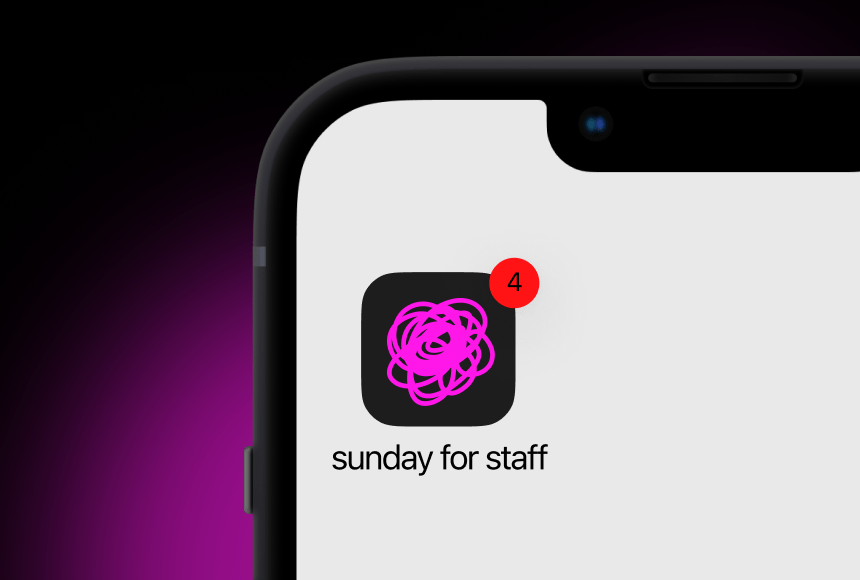
Guiding Your Restaurant Team to Thrive in the Hospitality Landscape of 2025
The year 2025 is just around the corner, and in the rapidly evolving United States restaurant industry, how you lead and empower your team can make all the difference. With the rise of digital solutions, new guest expectations, and an ever-competitive labor market, it’s no longer enough to rely on old-school management techniques. Instead, forward-thinking restaurateurs are blending technology, emotional intelligence, and innovative leadership methods to maintain a stable, motivated staff—one that’s ready to meet changing consumer demands head-on.
Below, we’ll explore strategies to manage your restaurant personnel effectively in 2025. We’ll address emerging challenges like workforce retention, the benefits of tapping into digital tools (including sunday), and ways to create a healthy, growth-oriented environment for everyone on your team.
The Changing Face of Restaurant Staffing
The past few years have seen dramatic shifts in how restaurants recruit, train, and retain staff. Gone are the days when a decent wage, a friendly smile, and a “help wanted” sign were enough to ensure a stable workforce. In 2021–2022, data from the U.S. Bureau of Labor Statistics indicated that the restaurant industry faced one of the highest turnover rates in the country—sometimes exceeding 70%.
Why the churn? Part of it is due to a hot job market that gives employees more choices. Another factor is heightened expectations from workers: they want clearer growth opportunities, better work-life balance, and a sense of purpose. As a result, building a cohesive team in 2025 requires a blend of new strategies:
- Emphasizing career development, not just training
- Offering flexible shifts or scheduling when possible
- Adopting modern technology that streamlines tasks and fosters staff well-being
Building a Foundation of Trust and Transparency
The first step to managing any team—especially in a high-stress environment like hospitality—is forging a culture of trust. In 2025, restaurant employees have access to more resources, reviews, and tools to find alternative work if they sense hidden agendas or disorganization.
- Open Communication Channels
Encourage your staff to provide direct feedback about everything from menu updates to shift schedules. Holding brief pre-shift huddles or post-service check-ins can help identify brewing issues before they turn into bigger problems. - Clear Role Definitions
No one likes guessing what’s expected of them. By 2025, many restaurants will use digital checklists (available on tablets or smartphones) that detail daily tasks, from setting tables to verifying reservation logs. These tools ensure each employee knows their responsibilities, reducing tension and overlap. - Data-Driven Metrics
Use analytics, like the staff performance metrics from including sunday, to set benchmarks. For instance, you might track average table turnover or sales per labor hour. Share these metrics with the team so they see how their work affects the restaurant’s broader goals.
Leveraging Technology for Smarter Team Management
The days of scribbling notes on a clipboard to manage shifts or rummaging through receipts to calculate tips are going extinct. In 2025, the American restaurant scene thrives on digital convenience that benefits both operators and staff.
Automated Scheduling
Managers can use advanced software to predict rush periods based on historical data, local events, or even the weather. This proactive approach prevents under- or over-staffing. It also provides more predictability for employees who can plan their personal lives without last-minute changes. According to a 2023 survey by Workforce Institute, consistent scheduling significantly boosts staff morale and retention.
Seamless Payment and Tips
Cashless, contactless, or QR-code-based payment solutions—like sunday—speed up table turnover and reduce chaos at checkout. Guests appreciate the convenience, while servers benefit from more accurate tip distribution. Real-time logging of tips also means less haggling at the end of a shift over who earned what. This clarity helps maintain a positive vibe among the team.
Employee Portals and Apps
Imagine each staff member having a personal dashboard showing hours worked, upcoming shifts, and training modules for new menu items. By 2025, easy-to-use apps that integrate with your POS or scheduling system will be a key differentiator. They can also notify employees of shift openings, special promotions, or important announcements, saving managers from endless group texts.
Fostering Professional Growth and Retention
Staffing in the U.S. has become increasingly competitive, prompting many restaurant owners to realize that investing in their employees is no longer optional—it’s essential.
- Continuous Learning
Beyond basic orientation, consider monthly or quarterly workshops. Topics might range from improving wine knowledge to mastering new cooking techniques. Even a 2024 Toast study indicated that 62% of hospitality employees stay longer at a job that regularly invests in their skill development. - Pathways to Promotion
Front-of-house staff who dream of bartending or back-of-house staff who want to climb the ranks to sous-chef often leave if they see no advancement prospects. By creating a clear, step-by-step plan for each role, you send a strong message: “We care about your future.” If a line cook can become lead cook or a junior server can grow into a shift supervisor, they’re more likely to remain loyal. - Mentorship Programs
Pair experienced veterans with newcomers. This can expedite training, reduce errors, and instill a sense of team unity. Mentors benefit by honing leadership skills, and mentees gain confidence. A well-structured mentorship initiative can significantly lower turnover while improving the quality of service.
Balancing Tech and the Human Touch
Yes, digital tools can be a game-changer, but it’s critical not to lose the personal connections that define great restaurants. No matter how advanced the software, employees still need empathy and understanding from their leaders.
Human-Centric Management Tips
- Acknowledge special occasions: birthdays, work anniversaries, or personal milestones
- Actively listen to staff ideas—some of the best menu changes or promotions start as suggestions from a line cook or hostess
- Be flexible if employees request shift swaps or special arrangements, within reason
Employee Well-Being
In 2025, mental health awareness is higher than ever. Consider offering access to a mental health app or occasional workshops on stress management. Even scheduling a quick daily check-in can make a difference, especially during peak seasons like summer or the holidays.
The Role of On-the-Spot Feedback
Restaurants move fast, and your feedback should too. Gone are the days of waiting for an annual performance review to highlight someone’s strong or weak points. Constructive criticism—offered immediately and tactfully—can help staff members correct course before bad habits form. Similarly, praise for a job well done has more impact if it’s immediate and specific.
- Positive Reinforcement
Catch a server deftly handling a tricky customer request? Let them know you noticed. A well-timed “That was great initiative—thank you for stepping in” can do wonders for morale. - Real-Time Coaching
If the kitchen is consistently slow on one course, address it between service waves. Pinpoint the cause—maybe plating is too elaborate—and brainstorm solutions. This swift action fosters a problem-solving culture instead of finger-pointing. - Tech Tools for Quick Surveys
Some managers create digital feedback forms that staff can fill out post-shift (anonymously or not). This encourages everyone to reflect on the day and offer suggestions without the intimidation of a formal meeting. Over time, these mini-evaluations can highlight recurring issues or successes.
Emphasizing Inclusion and Diversity
America’s restaurant scene is famously diverse—both in cuisine and in staffing. In 2025, inclusive leadership isn’t just a moral imperative; it’s also a strategic advantage. Customers appreciate an environment where employees feel safe and respected, while staff are more engaged if they sense fairness and representation.
- Provide training on cultural awareness and communication styles
- Ensure your management team represents a variety of backgrounds and experiences
- Encourage staff to share personal heritage or menu ideas that could enrich your dining experience
A 2023 McKinsey report found that businesses embracing diversity and inclusion enjoy higher employee satisfaction rates and reduced turnover, which translates directly into better guest experiences.
Involving the Team in Growth and Innovation
Employees in 2025 want to feel they’re contributing to something bigger than themselves. By tapping into your staff’s creativity, you can differentiate your restaurant and keep motivation high.
- Host monthly brainstorming sessions about menu items, new promotions, or local partnerships
- Let staff lead mini-projects. For instance, a server might orchestrate a themed cocktail night or a line cook might propose a specialty dessert for a weekend test-run
- Tie achievements to tangible rewards, whether it’s a bonus, prime shifts, or a staff outing
Team-driven innovation can yield fresh ideas that a manager or owner alone might miss. The synergy between frontline staff—who see and hear guest reactions daily—and leadership can produce winning moves that elevate your brand.
Looking Toward a Future of Empowered Teams
The restaurants that thrive in 2025 will be those that view management not as a top-down directive but as a collaborative, tech-savvy endeavor. By combining digital tools (like sunday for easier payments and staff efficiency) with genuine care for employees’ aspirations, you can cultivate a working environment that stands out in a crowded market.
What’s next? Possibly more AI-driven predictive scheduling, increased hybrid dining options, and further emphasis on staff well-being. Yet the core principle remains: treat your team with respect, invest in their growth, and adapt to new tools and trends with an open mind. Do that, and you’ll likely see lower turnover, higher morale, and a consistently delightful guest experience—ingredients that are vital for long-term success in the ever-evolving world of American hospitality. Bon appétit to a more dynamic, people-centric approach to restaurant management!
Find out more today
Drop us your details below and we’ll reach out within the next 24h
Get to know your team.
Gather insightful data about your staff in real-time.




